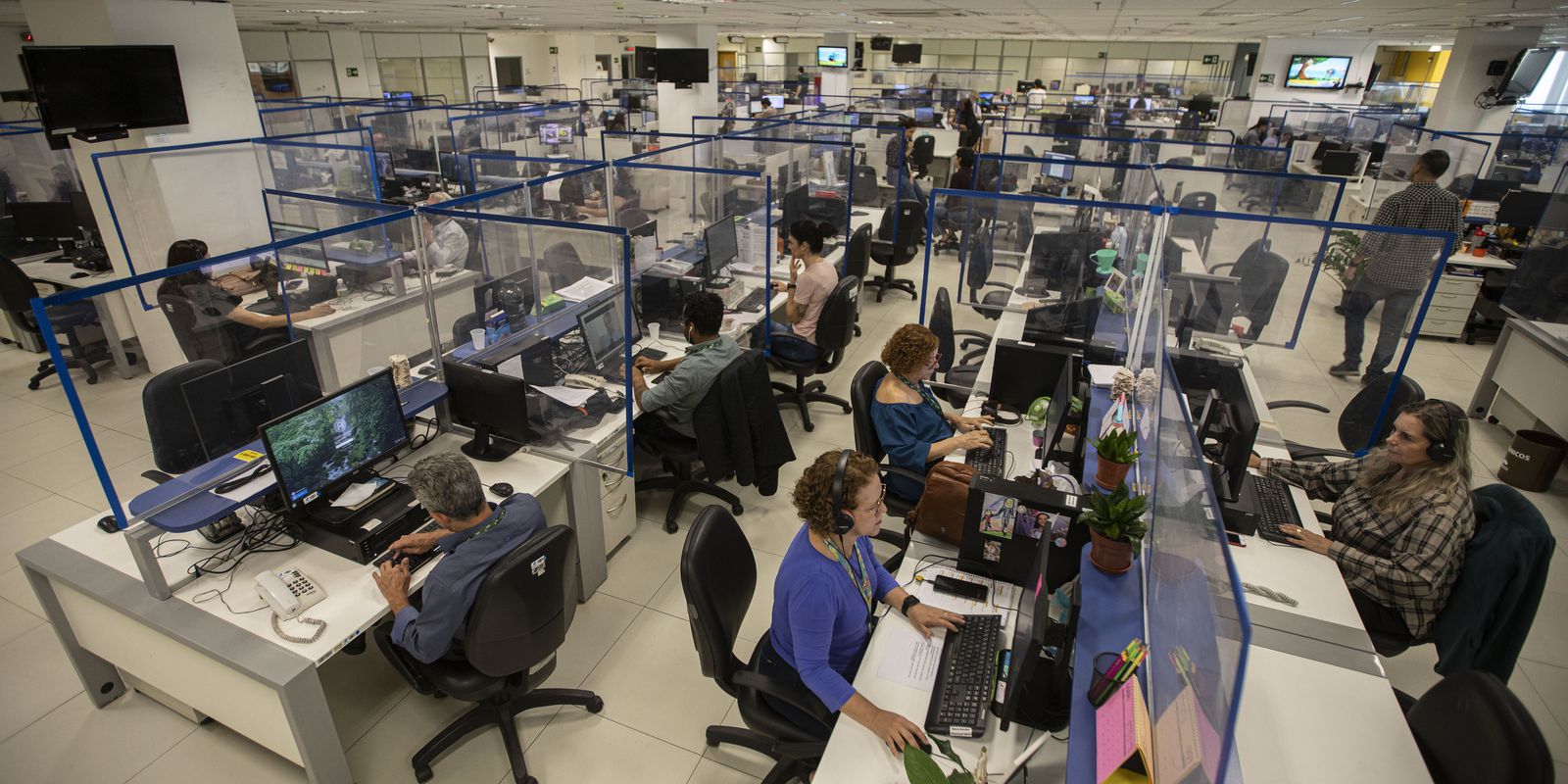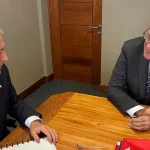Today, April 7, the Brazilian Press Association (ABI) completes 115 years of existence. Throughout its centenary history, the entity has participated in central debates in national politics. Corridors and rooms in the headquarters building, in Rio de Janeiro, were frequented by intellectuals from different party and ideological positions. And, for that very reason, the association had in its ranks staunch defenders of freedom of the press, as well as those who flirted with authoritarian governments.
ABI reaches 2023 with the challenge of attracting a greater number of journalists, especially young people. Internal research from 2022 showed that 89% of members were over 55 years old. “We are in the process of expanding members, especially young people who, somehow, did not participate in this history of ABI in Brazil. This is our main interest now, the renovation”, explains Vitor Iório, coordinator of the Education Committee. “The entity, due to this expansion of new technologies, is becoming truly national. Before, it was more restricted to Rio de Janeiro, São Paulo and Brasília. But today we have associates and advisers and participants from north to south and from east to west of Brazil”.
Despite the scope, the number of members had a significant historical drop. In an academic survey, Hérica Lene, PhD in Communication in Culture at the Federal University of Rio de Janeiro (UFRJ), indicated that there were 3,880 associates in 1940. In 2013, around 8,300. Ten years later, the number is around 700.
Journalist Octávio Costa was elected president in 2022, with vice-president Regina Pimenta. He guarantees that the entity will actively participate in the main debates involving the communication sector. The goal is, above all, to regain the prestige of other times. Costa listed as main concerns the return of the requirement for a journalist’s diploma, the valuation of the work portfolio in place of hiring by the legal entity regime, the confrontation of harassment against the press and the regulation of the large digital platforms.
“We are part of a Ministry of Justice working group that deals with violence against journalists. In another group at the Federal Public Ministry that deals with the issue of judicial harassment against journalists, which are the cascade processes for crime of opinion. And within the Attorney General’s Office, a National Attorney for the Defense of Democracy was created. ABI is participating in this group as well. In other words, ABI is involved with all the major issues involving communication in Brazil,” he said.
Foundation
The institution was born on April 7, 1908 as the first corporate organization of journalists in the country. The initial name was Press Association. Only in 1913 would it change to Associação Brasileira de Imprensa (ABI). It had an essentially welfare character: it maintained a pension fund and support for partners and family members, medical and pharmaceutical aid, infirmary services and residence for the elderly. The initiative was led by black journalist and socialist Gustavo de Lacerda, the son of a woman who had been enslaved. He ended up dying almost a year and a half after the creation of the institution, in September 1909.
The following presidents managed to keep the entity in operation, despite the low adherence of the journalistic class. One reason was opposition and sabotage by newspaper owners. The 1920s and 1930s were years of change and strengthening, when the ABI incorporated other entities with similar purposes, the Clube da Imprensa and the Associação de Imprensa Brasileira.
Consolidation
The main name at the time was Herbert Moses, who presided over the entity between 1931 and 1964, when it in fact consolidated itself as an institution of national importance and gained fame as the “home of the Brazilian journalist”.
In addition to promoting congresses and lectures on the profession, ABI campaigned for the creation of a journalism school. The first regular course in the country was at Fundação Cásper Líbero, in São Paulo, in 1947. In Rio de Janeiro, the course appeared in 1948, at the then National Faculty of Philosophy of the University of Brazil (now UFRJ). It had professors appointed by the ABI and financial resources obtained from the Companhia de Cigarros Souza Cruz, where Herbert Moses was a lawyer.
On the political front, Moses’ tenure was representative of an ambivalent ABI pattern. In two periods of authoritarian governments in the country, during the Estado Novo (1937-45) and the Military Dictatorship (1964-1985), he established the Commission for the Defense of Press Freedom, to denounce violence against journalists and protect those who were persecuted with legal and financial support.
On the other hand, relations with the federal government have always been close and questionable. Herbert Moses was criticized for his frequent dialogues with Getúlio Vargas. Internally, a group defended a break with the dictator during the Estado Novo period. But the ABI leader claimed that it was strategic to be in contact with the government to achieve material benefits for the entity and defend journalists and communication companies.
This relationship was fundamental for the construction of the current headquarters, in the center of Rio, whose building is listed by the National Historical and Artistic Heritage Institute (Iphan). The works lasted between 1936 and 1939. Moses obtained financial aid from the federal government, through a loan from Banco do Brasil, in the amount of 13 thousand contos de réis. Getúlio Vargas received the title of meritorious partner and Honorary President of the House.
Military dictatorship
When another coup took place, in 1964, the ABI did not formally support the military regime, as the Order of Lawyers of Brazil (OAB and the National Conference of Bishops of Brazil (CNBB) did initially. But it maintained an ambivalent stance, according to a study by historian Denise Rollemberg , professor at the Fluminense Federal University (UFF). She researched the minutes of the Ordinary and Extraordinary Meetings and the Bulletin of the ABI Administrative Council. The conclusion is that the entity was divided into positions of support and rejection of the dictatorship. While fighting arrests and protecting journalists , celebrated the government with tributes and banquets.
Celso Kelly, president of ABI in 1965, maintained a direct dialogue with the military. Minutes dated October 19, 1965 record a debate at the entity on the intervention of the Ministry of Labor in the Union of Journalists. Kelly was in favor, but backed down with opposition from other councilors. Months later, he would resign from office and take over the direction of the National Teaching Department, of the Ministry of Education.
At the celebration of ABI’s 60th anniversary, in April 1968, the military president Costa e Silva received homage at the entity, proposed by the president at the time, Danton Jobim. With the change in command of the military dictatorship, Emílio Garrastazu Médici was greeted in an official ABI telegram sent by Jobim. The text talks about the coincidence of positions and aspirations, and celebrates the existence of “an authentic democratic-representative system” in the country. Also emblematic was the election of Adonias Filho, who had supported the coup and the dictatorship, as president of the institution between 1972 and 1974.
Research by historian Leonardo Fetter da Silva, master at the Pontifical Catholic University of Rio Grande do Sul (PUCRS), reinforces that it was only from the mid-1970s onwards that the entity’s members and advisers became more cohesive in democratic resistance. On the institution’s anniversary in 1975, then-president Elmano Cruz said that freedom of the press was a “myth” in Brazil and criticized the frequent violations of human rights.
The following president, Prudente de Morais Neto, publicly condemned the murder of journalist Vladimir Herzog in the premises of the DOI-CODI (Detachment of Operations and Information-Center for Operations and Internal Defense) in São Paulo, in 1975. Such postures may have contributed to ABI becoming a target of extremist sectors of the pro-regime right. In 1976, the headquarters building suffered a bomb attack and the entire 7th floor was destroyed.
democratic period
In the 1980s, ABI openly defended the “Diretas Já” campaign, which called for direct elections for the presidency of the Republic. In August 1988, intellectuals, parliamentarians and civil society movements gathered in the ABI auditorium to defend the state oil monopoly and the nationalization of mining wealth. The act was led by then president Barbosa Lima Sobrinho.
The same Barbosa Lima Sobrinho presented to the Chamber of Deputies in Brasília the impeachment request of President Fernando Collor de Mello in September 1992. The document also had the signature of Marcelo Lavenère, president of the OAB. The request would be approved and Collor removed from office.
Journalism Week
In March, ABI organized the 1st National Week of Journalism, an event that intended to debate current issues of the profession nationwide. 76 professionals from the field participated in discussions on teaching, digital platforms, the role of the reporter, ethics, independent media and the political role of the press. One of the tables dealt with the topic of diversity in communication and the importance of increasing the number of black professionals. Agenda that connects past and future. It is considered central to the new directions that the entity intends to follow. And at the same time recovers the legacy of founder Gustavo Lacerda.
“ABI is committed to diversity. And it took 115 years, but we managed to establish the Ethnic-Racial Equality Board through the ‘Fight for ABI Democracy’ movement. We need to do work in the field of memory and history. And we are making partnerships with teaching institutions to be able to deepen and improve the quality of this work”, said Marcos Gomes, coordinator of ABI’s Ethnic-Racial Equality Commission. “It is a very broad field of work that we have ahead of us. We are only at the beginning, but this work will continue for another 115 years. This is our dream and desire.”
















